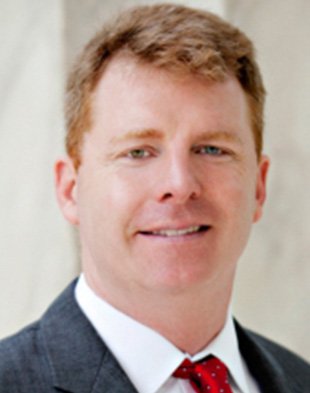Professor Melvin Christopher Jenks
Dallas, TX
Southern Methodist University, Dedman School of Law
U.S. Military Academy
University of Arizona College of Law
*** For academic year 2021-2022, Professor Jenks is serving as a resident autonomy and artificial intelligence research fellow at the Center for Naval Analysis in Arlington, Virginia ***
Chris Jenks is a professor of law and teaches criminal law, evidence and the law of armed conflict. He also serves as a consultant for the Department of Defense Office of the General Counsel, a research fellow at the Program on the Regulation of Emerging Military Technology in Australia and as member of the Council for International Institute of Humanitarian Law in Sanremo, Italy.
Professor Jenks’ research interests are at the intersection of the law of armed conflict, accountability norms and emerging technology. He is the co-author of a law of armed conflict textbook and has published book chapters with both Oxford and Cambridge University Presses. His articles have appeared in the law reviews and journals of Harvard, Berkeley, Georgetown, Stanford, & Washington & Lee and the International Review of the Red Cross. His blog posts have been featured on Lawfare, Just Security, and Opinio Juris. He has published opeds with both USA Today and Newsweek. He has presented to House and Senate Staffers on Capitol Hill, at the American Society of International Law, the Council on Foreign Relations, and at universities and institutes around the world.
In 2020 he testified at a Commission on Security Cooperation in Europe hearing on Artificial Weapons and Autonomous Systems. In 2019, he worked with both the Defense Innovation Board and the National Security Commission on Artificial Intelligence. Between 2017-2018, while on leave from SMU and serving as the Special Counsel to the General Counsel for the Department of Defense, Professor Jenks twice served on the U.S. delegation to the United Nations Group of Governmental Experts meetings on Lethal Autonomous Weapons in Geneva, Switzerland. He previously presented on autonomous weapons at a similar United Nations meeting. In 2015, he was awarded a Fulbright Senior Scholars Grant to research autonomous weapons as part of a multidisciplinary research group based out of Melbourne, Australia. In 2014, he served on a working group on the environment and armed conflict at the United Nations in New York organized by the Special Rapporteur for the International Law Commission. And in 2013, he served as a consultant to the Office of the Secretary of Defense on security sector reform in the Democratic Republic of the Congo.
Prior to joining the SMU faculty, Professor Jenks served for more than 20 years in the U.S. military, first as an infantry officer and later as a judge advocate and was detailed to the human rights and refugees section of the Office of the Legal Adviser at the Department of State and as a Special Assistant U.S. Attorney on both the civil and criminal side at the Department of Justice.
The Department of Justice’s Counterterrorism Section nominated him for the John Marshall Award for interagency cooperation following his work as the lead prosecutor in the Army’s first counterterrorism trial involving a soldier who attempted to aid the al-Qaeda terrorist network. While working at the Department of State, he served as a member of the U.S. delegation to the Third Committee of the United Nations General Assembly. In his last assignment, Professor Jenks served as the chief of the international law branch for the U.S. Army in the Pentagon, where he supervised the program by which foreign countries asserted criminal jurisdiction over U.S. service members and represented the Department of Defense at Status of Forces Agreement negotiations; he was also the legal adviser to the U.S. military observers group, which provides personnel to U.N. missions around the world.
